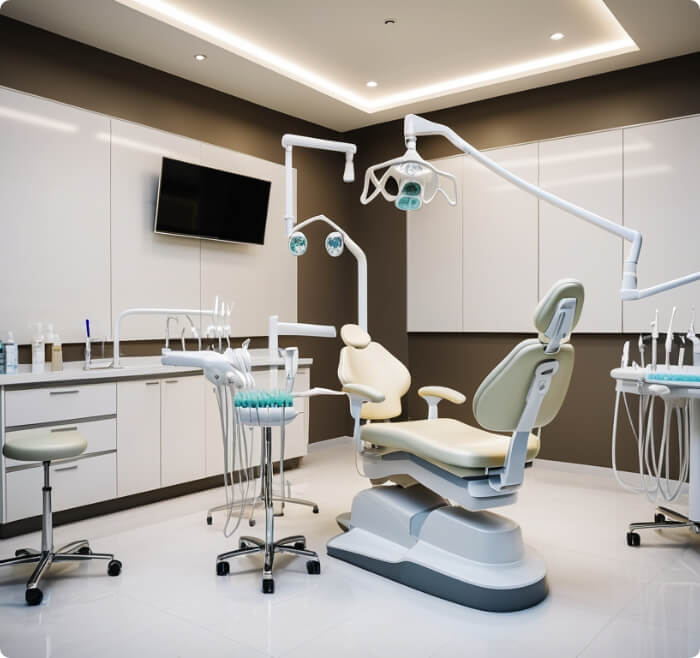How to Care for Your Teeth After Root Canal Treatment: A Complete Guide
Dates: 2024-12-05
View:
Root canal treatment (RCT) is a dental procedure that helps save a tooth that is severely decayed or infected. After the procedure, proper care is essential to ensure the treated tooth heals well and remains functional for many years. In this article, we’ll explore the key steps to take care of your teeth after root canal treatment, promoting healing and maintaining your oral health.
1. Follow Your Dentist’s Instructions
After your root canal treatment, your dentist will provide specific aftercare instructions based on your condition. These may include advice on pain management, diet restrictions, and follow-up visits. It's crucial to follow these guidelines closely to avoid complications and promote faster healing.
2. Manage Pain and Discomfort
Some discomfort is normal after a root canal, but it usually subsides within a few days. Your dentist may recommend over-the-counter pain relievers, such as ibuprofen or acetaminophen, to manage any pain. If the discomfort is severe or lasts longer than expected, contact your dentist for further guidance. Avoid chewing hard or sticky foods on the treated tooth until it is fully healed.
3. Maintain Good Oral Hygiene
Maintaining proper oral hygiene is vital after root canal treatment to prevent infection and ensure the treated tooth remains healthy. Brush your teeth gently with a soft-bristled toothbrush and fluoride toothpaste at least twice a day. Be sure to floss daily to remove plaque and food particles between teeth. However, avoid vigorous brushing or flossing around the treated tooth during the first few days, as it might cause irritation.
4. Avoid Hard or Chewy Foods
For the first few days after the procedure, avoid eating hard, crunchy, or chewy foods that can place undue pressure on the treated tooth. Opt for softer foods such as yogurt, mashed potatoes, and soup. Once your dentist confirms that the tooth has healed properly, you can gradually return to your normal diet, but always be mindful of any sensitivity.
5. Watch for Signs of Infection
Although root canal treatment is designed to eliminate infection, there is still a possibility of developing a secondary infection. Be vigilant for signs such as severe pain, swelling, or a persistent bad taste in the mouth. If you notice any of these symptoms, contact your dentist promptly for evaluation and treatment.
6. Follow Up with Your Dentist
Root canal treatment often requires one or more follow-up appointments to ensure the healing process is progressing as expected. These visits may include checking for infection, ensuring the filling is intact, and assessing the strength of the treated tooth. If you have any concerns, don’t hesitate to reach out to your dentist for advice.
7. Consider a Dental Crown
Once your root canal is complete, your dentist may recommend placing a dental crown on the treated tooth. A crown provides extra protection, strengthens the tooth, and restores its functionality. If a crown is recommended, make sure to schedule the placement promptly to avoid damage to the treated tooth and to maintain its long-term health.
Conclusion
Taking proper care of your teeth after root canal treatment is essential for long-term success. By following your dentist’s instructions, managing discomfort, maintaining good oral hygiene, and scheduling regular check-ups, you can ensure that your treated tooth remains healthy and functional for years to come. If you experience any unusual symptoms or concerns, always seek professional advice. With the right care, your tooth will continue to serve you well, helping you maintain a beautiful and healthy smile.
1. Follow Your Dentist’s Instructions
After your root canal treatment, your dentist will provide specific aftercare instructions based on your condition. These may include advice on pain management, diet restrictions, and follow-up visits. It's crucial to follow these guidelines closely to avoid complications and promote faster healing.
2. Manage Pain and Discomfort
Some discomfort is normal after a root canal, but it usually subsides within a few days. Your dentist may recommend over-the-counter pain relievers, such as ibuprofen or acetaminophen, to manage any pain. If the discomfort is severe or lasts longer than expected, contact your dentist for further guidance. Avoid chewing hard or sticky foods on the treated tooth until it is fully healed.
3. Maintain Good Oral Hygiene
Maintaining proper oral hygiene is vital after root canal treatment to prevent infection and ensure the treated tooth remains healthy. Brush your teeth gently with a soft-bristled toothbrush and fluoride toothpaste at least twice a day. Be sure to floss daily to remove plaque and food particles between teeth. However, avoid vigorous brushing or flossing around the treated tooth during the first few days, as it might cause irritation.
4. Avoid Hard or Chewy Foods
For the first few days after the procedure, avoid eating hard, crunchy, or chewy foods that can place undue pressure on the treated tooth. Opt for softer foods such as yogurt, mashed potatoes, and soup. Once your dentist confirms that the tooth has healed properly, you can gradually return to your normal diet, but always be mindful of any sensitivity.
5. Watch for Signs of Infection
Although root canal treatment is designed to eliminate infection, there is still a possibility of developing a secondary infection. Be vigilant for signs such as severe pain, swelling, or a persistent bad taste in the mouth. If you notice any of these symptoms, contact your dentist promptly for evaluation and treatment.
6. Follow Up with Your Dentist
Root canal treatment often requires one or more follow-up appointments to ensure the healing process is progressing as expected. These visits may include checking for infection, ensuring the filling is intact, and assessing the strength of the treated tooth. If you have any concerns, don’t hesitate to reach out to your dentist for advice.
7. Consider a Dental Crown
Once your root canal is complete, your dentist may recommend placing a dental crown on the treated tooth. A crown provides extra protection, strengthens the tooth, and restores its functionality. If a crown is recommended, make sure to schedule the placement promptly to avoid damage to the treated tooth and to maintain its long-term health.
Conclusion
Taking proper care of your teeth after root canal treatment is essential for long-term success. By following your dentist’s instructions, managing discomfort, maintaining good oral hygiene, and scheduling regular check-ups, you can ensure that your treated tooth remains healthy and functional for years to come. If you experience any unusual symptoms or concerns, always seek professional advice. With the right care, your tooth will continue to serve you well, helping you maintain a beautiful and healthy smile.
Get A Quote
Connect With Us For Dental Equipment Needs
Send Us Your Request And We Will Get Back To You As Soon As Possible.




